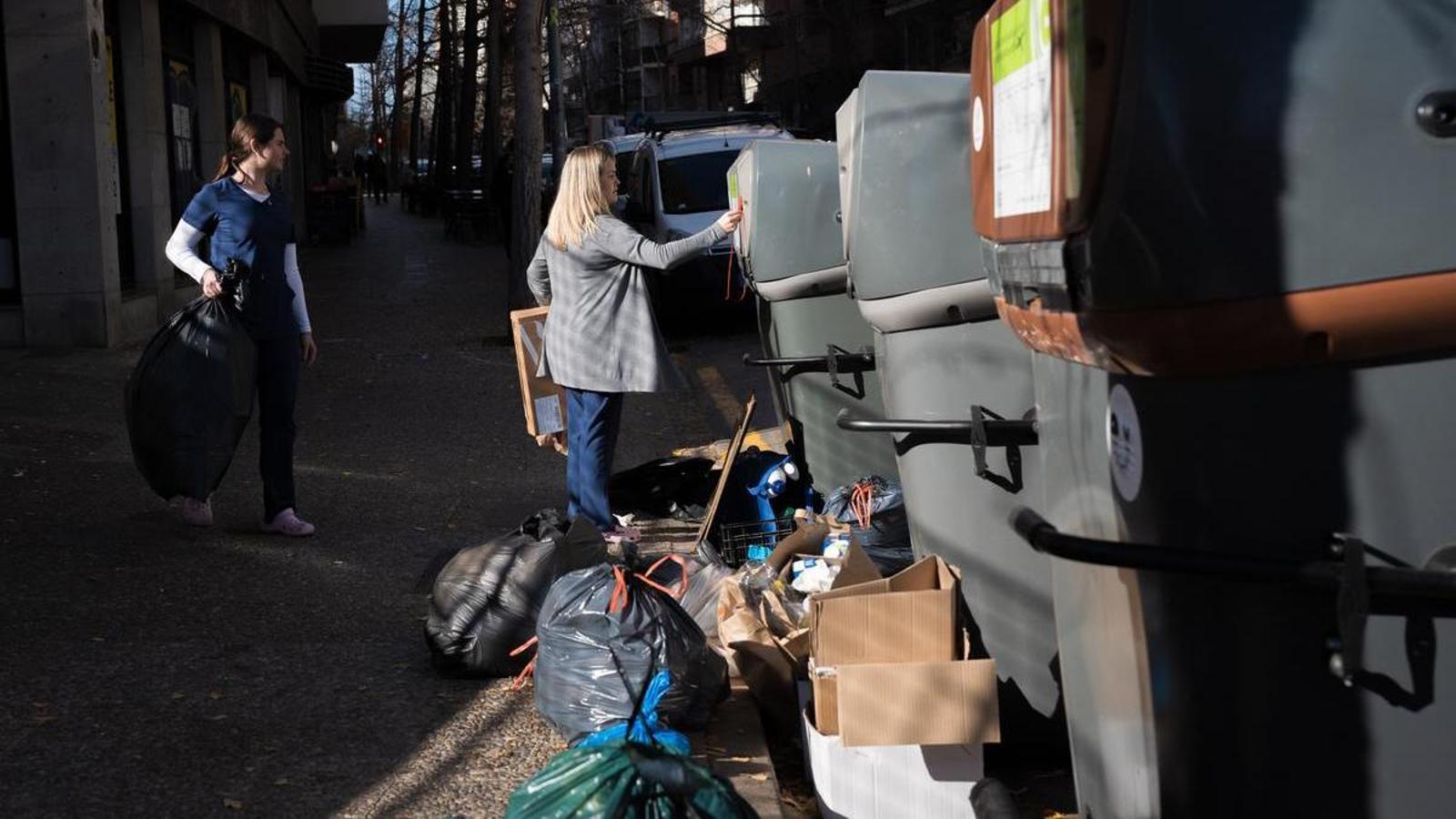Girona puts an end to the recycling revolution after months of boycott and filth
The City Council modifies the contract with the private company that manages waste and eliminates the weekly selective collection schedule.


GironaSince Girona changed the waste collection system with smart containersBy early 2025, garbage has become the city's biggest headache. For months now, the Girona capital hasn't had the traditional color-coded recycling bins. Instead, it's been multi-fraction containers opened with a personal card, and only the type of waste (containers, paper, waste, sanitary textiles, or organic materials) specified on the calendar can be disposed of. Similarly, in neighborhoods with lower waste density, there are door-to-door collections or mixed systems, while businesses, which generate a large amount of waste, must also manage their garbage on a specific schedule. However, seven months later, walking around the city, it's clear that this new collection system hasn't worked as expected.
On paper, the contract between the City Council and the private company Girona+Neta, which manages the waste, failed to anticipate the magnitude of a change of this magnitude, which requires completely altering the habits of more than 100,000 Girona residents. Faced with this situation, many residents, who complain that the system is neither practical nor efficient, have responded with incivility and boycotts, throwing garbage where it shouldn't be to show their discontent with the municipal government. All of this has resulted in practically every garbage container in the city being surrounded by waste, old furniture, and all kinds of filth like never before. More than 10 irregular dumpings occur every day, and during 2025, more than 300 fines of between €500 and €12,000 have already been issued. Illegal dumping sites have even been discovered in some vacant lots on the outskirts of the city, where some residents drive to unload their garbage.
Radical modification of the contract
For all these reasons, the City Council, after making some adjustments and issuing sanctions to the company for non-compliance, has taken the drastic decision to modify the inherited contract with a thorough reformulation that, de facto, This means the city is returning to a model similar to the original: starting in 2026, separate containers will be returned for each fraction and can be opened every day and at any time. However, the use of smart cards will continue. The changes involve the purchase of more than 1,100 containers and an additional cost of 3.85%, which in practice translates to approximately €6.5 million.
"These improvements are the direct result of a process of active listening with the public. The goal is clear: to make people's lives easier while simultaneously improving recycling rates in Girona and maintaining a clean city. We adapt to improve," emphasizes the city's mayor, Lluc Salellas i Vilar. Until now, for example, paper and cardboard could only be thrown away one day a week; packaging, two; waste and sanitary textiles, three; organic waste, five; and glass, which until recently could be thrown away once a week, can now be thrown away every day as of this July.
Criticism from neighbors and the opposition
The contract modification responds to the demands of the majority of Girona residents who had raised their voices in recent months. The Germans Sàbat Residents' Association, for example, had launched the "Clean Girona" campaign, posting a series of images of overcrowded bins on social media, tagging the City Council. Within a month, they had submitted more than 6,500 signatures to the council demanding improvements. The increase in the garbage collection rate, combined with the poor performance of the service, has also done nothing to calm residents' feelings. "This situation is intolerable for people who live in small apartments, who must keep their children's diapers, glassware, and organic waste stored at home, waiting for the day they come to collect it," argues Jordi Tomàs, one of the campaign's promoters.
Beyond the residents, the opposition has also targeted the governing team. The contract change was approved in Monday's plenary session with the votes of Guanyem, Junts, and Esquerra, in addition to the Vox councilor, and the PP abstained. Only the PSC voted against: "The city is dirty, and everyone can see that. The approved contract modification resolves nothing. Until at least 2026, the city will remain the same," says Socialist councilor Carla Aguilera.
The origin of the current smart container contract with Girona+Neta dates back to 2022, signed by Marta Madrenas's Junts government at the end of its term, precisely with the dissenting vote of Guanyem, who was in charge of implementing it in 2024 and 202. The objective of this system change was to reach the European framework of 70% selective collection by 2030 and that 60% of waste ends up being recycled. The same objectives according to which the current government is working to adapt the contract signed three years ago to the functioning of the city: "We want Girona to be a city that generates less waste, that is committed to giving materials a second life and that places prevention at the heart of its environmental policy. Likewise, the changes we are presenting are based on data and will allow us to improve collection rates," argues the Councilor.
